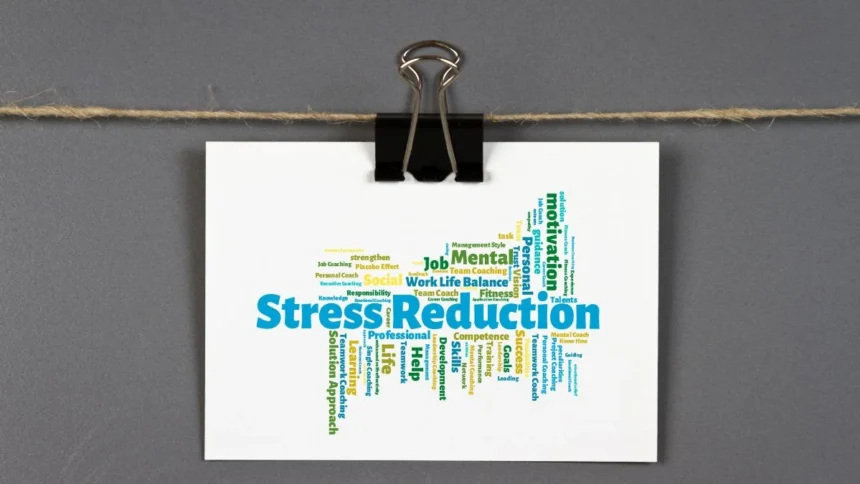Introduction
In today’s fast-paced world, stress has become an inevitable part of life. Whether it’s work pressure, personal challenges, or external factors, managing stress is essential for maintaining both mental and physical well-being. “Mastering stress reduction” is not only about avoiding stress but actively engaging in practices that help you manage and reduce it effectively. This article explores practical techniques that can aid in stress reduction, promoting a calmer, healthier life.
Understanding Stress: The Root Cause
Before diving into stress reduction techniques, it’s important to understand stress. Stress is the body’s natural reaction to challenges or demands, whether they are physical, emotional, or psychological. When faced with stress, the body releases hormones like cortisol, which can trigger the fight-or-flight response. While short-term stress can be beneficial in certain situations, chronic stress can lead to a variety of health issues such as heart disease, anxiety, and depression. Understanding the importance of mastering stress reduction can help you avoid these long-term consequences.
1. Practice Mindfulness Meditation
Mindfulness meditation is one of the most effective ways to reduce stress. This technique encourages you to focus on the present moment, making it easier to detach from negative thoughts and worries that often cause stress. By paying attention to your breath and being fully present, you can calm your mind and body, leading to reduced anxiety levels and improved emotional regulation. Regular mindfulness practice has been shown to enhance well-being, reduce cortisol levels, and improve sleep, which further contributes to overall stress reduction.
2. Deep Breathing Exercises
Another powerful stress reduction technique is deep breathing. Deep breathing activates the parasympathetic nervous system, which helps calm the body’s stress response. By practicing deep breathing exercises, you can decrease heart rate, lower blood pressure, and induce a state of relaxation. To begin, take slow, deep breaths in through your nose, hold for a few seconds, and then exhale through your mouth. Doing this for several minutes can help reduce tension and promote a sense of calm.
3. Physical Exercise
Exercise is a fantastic way to reduce stress. Engaging in physical activity stimulates the production of endorphins, the body’s natural mood elevators. Whether it’s going for a walk, hitting the gym, or practicing yoga, any form of physical movement can release pent-up stress and anxiety. Regular exercise helps to regulate the stress response, improving your ability to cope with stressful situations. Incorporating exercise into your daily routine is a powerful tool for mastering stress reduction.
4. Prioritize Healthy Sleep Habits
Adequate sleep is crucial for stress management. Lack of sleep can heighten stress levels and impair your ability to handle challenging situations. To improve your sleep hygiene and reduce stress, establish a consistent sleep schedule, avoid caffeine late in the day, and create a calming nighttime routine. A restful night’s sleep allows your body and mind to recover, making you better equipped to manage stress the next day.
5. Social Support and Connection
Building and maintaining strong social connections is vital for stress reduction. Having a support system of friends, family, or colleagues can provide comfort, encouragement, and a sense of belonging. Talking about your stressors with others can also help you gain perspective and feel less isolated. Strong relationships can buffer the impact of stress and improve resilience, allowing you to better navigate life’s challenges.
6. Healthy Eating Habits
Nutrition plays a significant role in stress management. A healthy diet can improve your body’s resilience to stress and enhance your mood. Foods rich in antioxidants, omega-3 fatty acids, and B vitamins can help reduce inflammation and support brain function. Additionally, staying hydrated is important for maintaining optimal physical and mental health. Avoiding excessive caffeine and sugar can prevent energy crashes and mood swings, both of which can contribute to heightened stress levels.
7. Time Management
Poor time management can contribute to stress by leaving you feeling overwhelmed and out of control. By prioritizing tasks and setting realistic goals, you can reduce the feeling of being rushed or burdened. Breaking larger tasks into smaller, manageable steps can make them feel more achievable, and taking regular breaks throughout the day can help prevent burnout. Learning how to delegate tasks and say no when necessary is also a key component of effective time management and stress reduction.
8. Practice Gratitude
Focusing on the positive aspects of life can be an effective stress reduction strategy. Practicing gratitude by keeping a gratitude journal or simply taking a moment each day to reflect on the things you are thankful for can shift your mindset. This practice helps you focus on the present moment and cultivates a more positive, optimistic outlook, reducing the impact of stressors in your life.
9. Laughter and Play
Laughter is one of the best natural stress relievers. Engaging in activities that bring you joy, whether it’s watching a comedy, playing with pets, or spending time with loved ones, can help release tension and improve your mood. Playfulness, whether through humor or creative expression, can help you reconnect with your inner child and reduce the impact of life’s stress.
10. Professional Help
If you find that stress is becoming overwhelming, seeking professional help may be necessary. A therapist or counselor can help you develop effective coping strategies and provide tools for managing stress in a healthy way. Cognitive-behavioral therapy (CBT) and other therapeutic modalities can address the root causes of stress and help you build resilience over time.
Conclusion
Mastering stress reduction is an ongoing process that requires practice, patience, and commitment. By incorporating these effective techniques into your daily routine, you can significantly reduce stress, enhance your overall health, and improve your quality of life. Whether through mindfulness, exercise, sleep, or social support, stress reduction is achievable. Remember, it’s not about eliminating stress completely but learning how to manage it in a way that promotes a calmer, healthier life.
Get more info: https://www.timelinetale.com/


